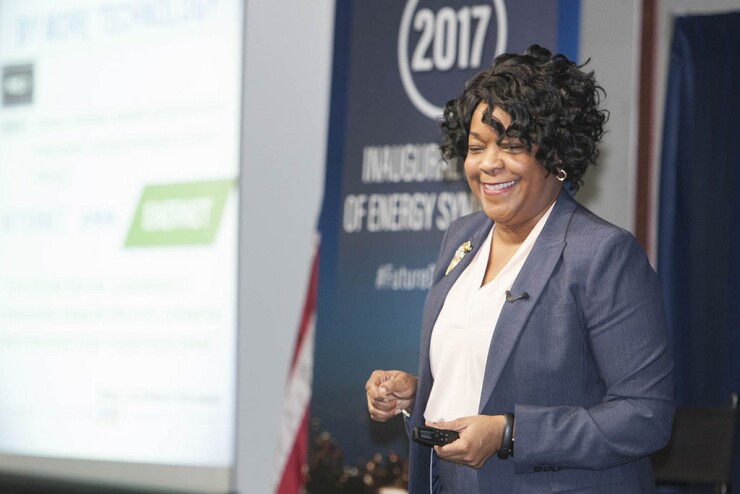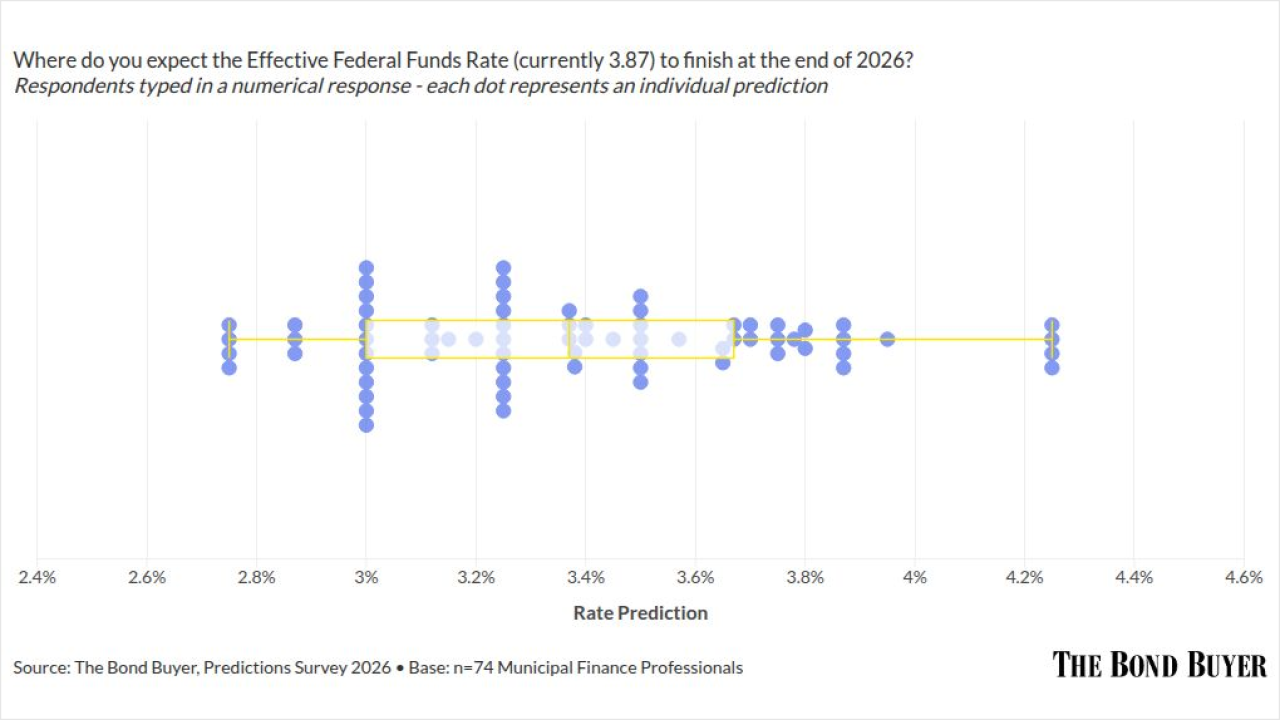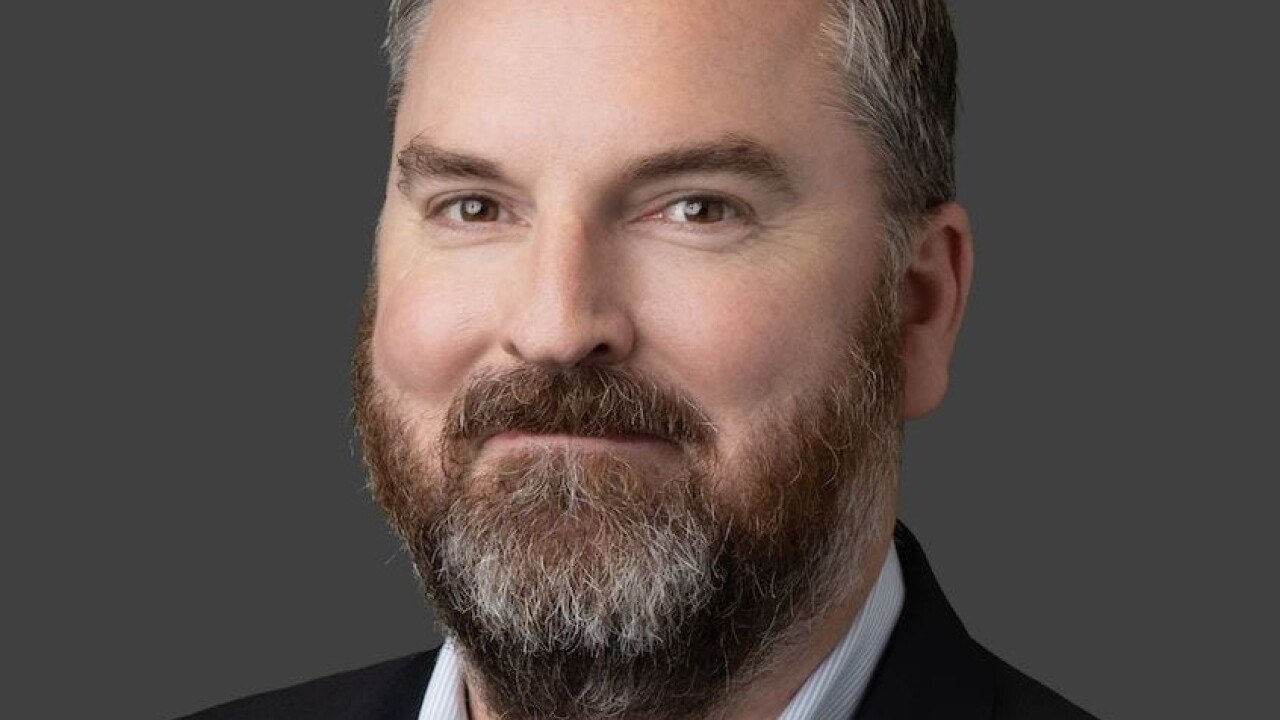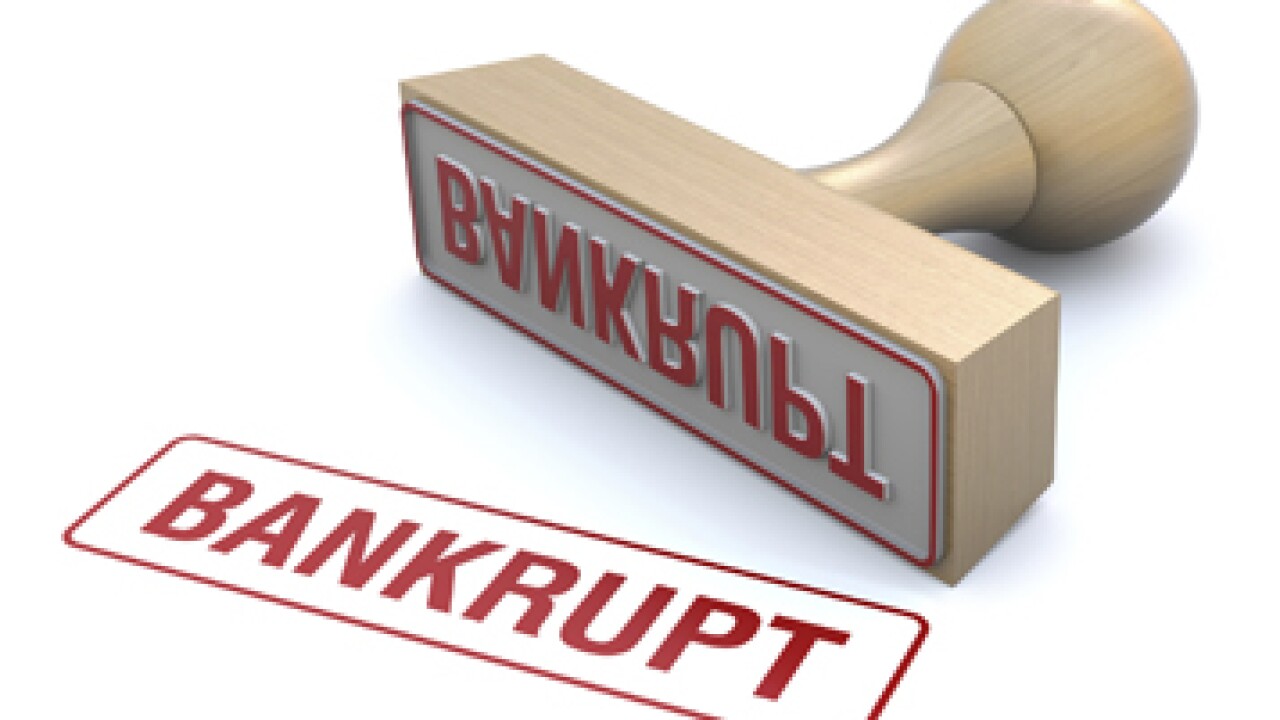DALLAS – Celebrating 75 years as a city-owned utility, San Antonio's CPS Energy will bring about $307 million of revenue bonds to market Tuesday to continue modernizing its grid and developing a cleaner energy portfolio.
"We're currently putting in a new grid system with new meters and infrastructure investment," said CPS chief executive Paula Gold-Williams. "We're close to 70% converted, and we expect to be fully converted in 2018."

While natural gas delivery makes up only 15% of the CPS business, "it is a competitive part of our system it's where we can have a lot of additional growth, so we continue to develop new strategies," Gold-Williams said.
The San Antonio City Council authorized up to $350 million, but Gold-Williams said the amount is expected to be about $307 million.
Goldman Sachs is senior manager with managing director Jill Toporek as lead banker. Co-managers are Citi, Ramirez & Co. and Rice Financial Products.
Public Financial Management, First Southwest Co., and Estrada Hinojosa & Co. are the city's financial advisors.
Norton Rose Fulbright is co-bond counsel with Kassahn & Ortiz.
With final maturity in 2047, the bonds carry ratings of AA-plus from Fitch Ratings, Aa1 from Moody's Investors Service and AA from S&P Global Ratings. Outlooks are stable.
"The stable outlook reflects our expectation that CPS Energy's financial risk profile will continue to be supported by apolitical decision-making, robust internal controls, and management policies," S&P analyst Scott Sagen said.
"CPS Energy's overall risk management practices are, in our opinion, thorough and diligent and are also likely to help preserve credit quality over our two-year outlook horizon," he wrote.
After years of adapting to stricter regulation of emissions, CPS expects to continue reducing coal consumption, despite President Trump's reversal of the Clean Power Plan enacted by President Obama. To increase employment in the coal industry, Trump is encouraging utilities to burn more coal.
However, Gold-Williams said that CPS has no plans to use more coal and will continue its efforts to close the Deely coal-fired unit in 2018.
Closing the plant was has been in the works for years and is designed to save the utility $3 billion in retrofitting the plant to comply with environmental regulations. It remains unclear how Trump's deregulatory efforts would affect those costs.
In 2010, CPS completed a $1 billion, 750-megawatt coal unit at the Calaveras Power Station, where the Deely units have been running since 1977 and 1978.
The nation's largest city-owned utility supplying both natural gas and electricity wants to reduce its reliance on fossil-fueled generation and boost its use of renewable resources, such as wind and solar power, to 20 percent, or 1,500 megawatts, by 2020.
CPS also owns 40% of the state's largest nuclear station, the 2,700-megawatt South Texas Project, but pared its investment in the planned STP expansion last year, months before NRG Energy Inc. dropped the project in the wake of Japan's Fukushima nuclear accident.
"The CPS power supply is well balanced with both conventional and renewable energy capacity that is evolving to lower carbon emissions," said Moody's analyst Dan Aschenbach. "Coal-fired generation is expected to be about 34.4% of projected generation in 2020. CPS participation in the ERCOT market in 2016 was challenging as lower energy prices caused by low natural gas prices and abundant wind energy has made its coal fleet less competitive."
U.S. Supreme Court rulings on both the Clean Power Plan and the mercury and air toxic standards are not expected to affect CPS Energy, since its coal fleet is either already compliant or, in the case of the plant that Rio Nogales' capacity is replacing, scheduled to be deactivated by 2018 for eventual decommissioning, S&P said.
"However, given the inherent additional scrutiny and regulatory compliance that already existed for nuclear ownership and that might one day also include coal plants, we view the public power sector in general as facing headwinds in attaining a higher rating," Sagen said.
As the nation's largest combined gas and electric utility marks is 75th year as part of the city of San Antonio, Gold-Williams is nearing completion of her first year as chief executive officer. After previous CEO Doyle Beneby left in 2015, Gold Williams was named acting CEO, a promotion from her previous position as chief financial officer.
After a nine-month executive search the CPS Energy Board decided to make Gold-Williams' position permanent.
"Paula has done an outstanding job in her nine months as interim president & CEO and has provided solid operational guidance, strategic agility, and a renewed focus on customer and employee engagement during the transition," said board chairman Ed Kelley. "She is a highly impressive talent known for her inclusive leadership style, her 'People First' philosophy, and for building high performing, collaborative teams."
Gold-Williams, in turn, began filling her management team, hiring Edward Fleming Jr. as chief financial officer.
Fleming has more than 30 years financial experience in the energy industry, ranging from chief financial officer of a start-up oil field services company to managing the financial and accounting activities for a multi-billion dollar business unit of an offshore drilling firm. He is an electrical engineer and a certified public accountant.
Fleming holds a master of business administration from the Columbia University Graduate School of Business.
In a roadshow presentation, Fleming and Gary Gold, vice president for financial services, outlined CPS' good fortune in the refunding market and prospects for slow but steady growth amid continued low interest rates.
"Average peak demand growth for the next 25 years is estimated at 1% to 2% per year," Gold said.
Since 2006, CPS' average cost of debt has fallen from 4.9% to 3.99% in 2017.
"During this period, CPS Energy refinanced $2.8 billion of debt to achieve over $376 million of gross debt service savings," Fleming said. "Historically, since 1985, CPS has refinanced $8.6 billion of debt, which resulted in over $936 million of debt service savings." Gold said.





